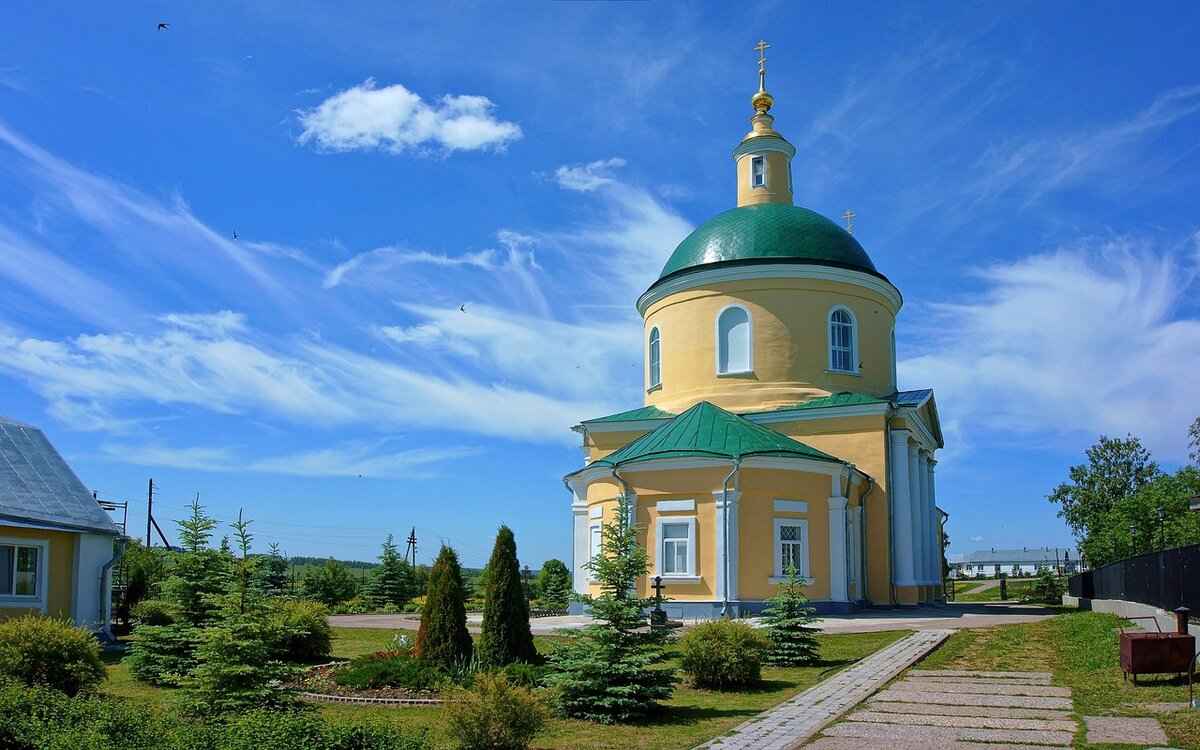This article explores the multifaceted views of actress Eva Green on spirituality and existence, delving into her insights, influences, and the broader implications of her beliefs. Green, known for her captivating performances, often infuses her roles with profound existential themes, reflecting her personal journey and spiritual exploration.
Eva Green’s spiritual evolution is a reflection of her personal experiences and artistic influences, shaping her unique perspective on life’s deeper meanings. Throughout her career, she has expressed a fascination with the concept of existence and the human condition, often drawing from her own life experiences to inform her understanding of spirituality.
Green’s spirituality is informed by various cultural and artistic influences, including literature, film, and personal encounters that have shaped her worldview. Her eclectic background allows her to draw from a rich tapestry of ideas and philosophies, making her insights both unique and relatable.
Literature has played a pivotal role in Green’s spiritual development, providing philosophical insights and emotional depth that resonate with her journey. Works by influential authors have helped her navigate complex questions about life and existence.
- Albert Camus – His exploration of absurdism and the search for meaning deeply resonates with Green.
- Gabriel Garcia Marquez – His magical realism invites reflection on the mystical aspects of life, aligning with Green’s artistic sensibilities.
Themes of love, loss, and the search for meaning found in literature often echo in Green’s own experiences and artistic expressions, shaping her understanding of the world around her.
Green’s roles in various films have allowed her to explore complex spiritual themes, showcasing her belief in the power of storytelling to convey deeper truths. Through her characters, she often grapples with existential dilemmas, inviting audiences to reflect on their own beliefs.
Green’s personal experiences, including her upbringing and travels, have significantly influenced her spiritual outlook and understanding of the human condition. These experiences have enriched her perspective, allowing her to connect with diverse spiritual practices.
Growing up in a family of artists, Green was exposed to diverse perspectives on life and spirituality, fostering her curiosity and introspection. This artistic environment encouraged her to explore her own beliefs and question conventional ideas.
Her travels around the world have enriched her understanding of different spiritual practices and philosophies, broadening her worldview and appreciation for diversity. Each culture she encounters adds layers to her spiritual beliefs, making them more nuanced and inclusive.
Nature plays a fundamental role in Eva Green’s spiritual beliefs, serving as a source of inspiration and reflection in her life and work. She often finds solace and clarity in the natural world, viewing it as a vital aspect of her spirituality.
Green often expresses a deep connection to nature, viewing it as a vital aspect of her spirituality that fosters peace and understanding. This connection allows her to appreciate the beauty and complexity of life, reinforcing her beliefs.
The beauty and complexity of nature inspire Green’s artistic expressions, often reflecting themes of life, death, and renewal. Her work serves as a testament to the profound impact nature has on her spiritual journey.
Green’s artistic endeavors often incorporate her spiritual beliefs, making her work a reflection of her inner journey and quest for meaning. Through her characters and narratives, she explores profound questions about existence.
Many of Green’s characters grapple with existential questions, mirroring her own explorations of spirituality and the human experience. This thematic consistency showcases her commitment to portraying authentic and relatable narratives.
Through her art, Green uses storytelling to delve into complex spiritual themes, inviting audiences to reflect on their own beliefs and values. Her films often challenge viewers to confront their understanding of life and existence.
Green’s interpretation of life’s meaning is deeply personal, shaped by her experiences, beliefs, and the narratives she encounters. Her views are a culmination of her artistic journey and spiritual explorations.
For Green, authenticity is central to finding meaning in life, emphasizing the importance of being true to oneself in a world filled with distractions. This pursuit of authenticity informs her choices both personally and professionally.
Green acknowledges the transient nature of life, advocating for an acceptance of impermanence as a pathway to deeper understanding and appreciation. This perspective encourages a mindful approach to existence, allowing for a richer experience of life.
As Green continues her journey, her aspirations reflect her commitment to personal growth and the exploration of spirituality in her life and work. Her evolving beliefs will undoubtedly influence her future artistic endeavors.
Green remains dedicated to exploring new spiritual practices and philosophies, seeking to expand her understanding of existence. This commitment to growth is evident in her artistic choices and public persona.
Her evolving spirituality is likely to influence her future artistic projects, contributing to a richer narrative in her work. Green’s journey serves as an inspiration to many, encouraging a deeper exploration of their own beliefs and values.

Understanding Eva Green’s Spiritual Journey
Eva Green, the acclaimed French actress known for her captivating performances, has embarked on a profound spiritual journey that reflects her unique life experiences and artistic influences. Her evolution in spirituality is not merely a personal endeavor but a tapestry woven from her diverse encounters, artistic expressions, and philosophical explorations. This exploration has shaped her understanding of the world and her place within it, leading to a rich and multifaceted perspective on existence.
Throughout her life, Green has engaged deeply with various forms of art, literature, and personal experiences that have contributed to her spiritual growth. In her childhood, growing up in a family of artists, she was exposed to a myriad of cultural influences that sparked her curiosity about life and spirituality. This early exposure fostered a sense of introspection, encouraging her to question and seek answers about existence and the human condition.
Moreover, Green’s travels around the globe have played a significant role in shaping her spiritual beliefs. Each culture she has encountered has offered new insights and perspectives, allowing her to appreciate the diversity of spiritual practices. From Eastern philosophies that embrace mindfulness to Western existentialism that grapples with the essence of being, Green has absorbed these influences, enriching her spiritual tapestry.
In addition to her travels, literature has served as a vital source of inspiration for Green’s spiritual journey. Authors such as Albert Camus and Gabriel Garcia Marquez have profoundly impacted her understanding of existential themes. Their works explore the complexities of love, loss, and the search for meaning, resonating deeply with Green’s own experiences. Through literature, she has found a spiritual guide that encourages reflection and introspection, helping her navigate the intricacies of life.
Furthermore, Green’s roles in cinema have provided her with a platform to explore complex spiritual themes. Many of her characters grapple with existential dilemmas, mirroring her own inquiries into the nature of existence. This intersection of art and spirituality allows her to convey deeper truths and invite audiences to reflect on their own beliefs and values.
Nature also plays a fundamental role in Green’s spiritual outlook. She often expresses a profound connection to the natural world, viewing it as a source of peace and understanding. The beauty and complexity of nature inspire her artistic expressions, often reflecting themes of life, death, and renewal. In her view, nature serves as a reminder of the impermanence of life, reinforcing her belief in embracing the present moment.
As Eva Green continues her journey, her spiritual evolution remains a dynamic process. Her commitment to exploring new philosophies and practices reflects her desire for personal growth and deeper understanding. This ongoing quest not only enriches her life but also influences her artistic endeavors, ensuring that her work remains a reflection of her inner journey.
In summary, Eva Green’s spiritual journey is a rich and evolving narrative shaped by her personal experiences, artistic influences, and the diverse cultures she has encountered. Through literature, film, and her connection to nature, she has cultivated a unique perspective on life that resonates with many. Her journey serves as a reminder of the importance of introspection and the continuous search for meaning in an ever-changing world.

Influences on Eva Green’s Spiritual Beliefs
Eva Green’s spirituality is a rich tapestry woven from a multitude of cultural and artistic influences. Her unique worldview is shaped by her experiences in literature, film, and personal encounters that have profoundly impacted her understanding of existence. This exploration delves into the various elements that contribute to Green’s spiritual beliefs, showcasing how they intertwine to create her distinctive perspective.
Literary Inspirations That Shape Spirituality
Literature stands as a cornerstone of Eva Green’s spiritual exploration. Through the pages of novels, she finds not only stories but also philosophical insights that resonate with her personal journey. Authors like Albert Camus and Gabriel Garcia Marquez have profoundly influenced her thoughts on existentialism and the human condition. Camus’s reflections on absurdism challenge her to confront life’s inherent uncertainties, while Marquez’s magical realism invites her to see the extraordinary within the ordinary.
Key Themes in Literature
- Love: The exploration of love in literature often mirrors Green’s own experiences, highlighting the complexities and beauty of human connections.
- Loss: Themes of loss resonate deeply, as they reflect the transient nature of existence, a concept Green embraces in her spiritual outlook.
- The Search for Meaning: Many literary works delve into the quest for purpose, a journey that Green actively engages with in her life and art.
Film as a Medium for Spiritual Exploration
Green’s film career has provided her with a platform to explore spiritual themes through diverse characters. Each role she undertakes allows her to delve into the complexities of existence, showcasing her belief in storytelling as a powerful tool for conveying deeper truths. Films such as “The Dreamers” and “Penny Dreadful” highlight her engagement with questions of identity, morality, and the nature of reality.
Personal Encounters and Their Impact
Beyond literature and film, Green’s personal experiences significantly shape her spirituality. Growing up in a family of artists, she was exposed to a myriad of perspectives on life and spirituality, fostering a sense of curiosity and introspection. Her travels across the globe have also enriched her understanding of diverse spiritual practices, from Eastern philosophies to indigenous traditions, broadening her appreciation for the myriad ways people seek meaning.
Cultural Exposure and Spiritual Growth
Travel has been a transformative experience for Green, allowing her to witness various cultural expressions of spirituality. Each encounter has contributed to her evolving beliefs, emphasizing the importance of embracing diversity in thought and practice. This exposure not only enhances her artistic expressions but also deepens her understanding of the human experience, reinforcing her belief in the interconnectedness of all beings.
The Role of Nature in Spiritual Influences
Nature serves as a profound source of inspiration for Green, intertwining with her spiritual beliefs. Her connection to the natural world fosters a sense of peace and understanding, reminding her of the beauty and complexity of life. This reverence for nature often finds its way into her artistic endeavors, where themes of life, death, and renewal are explored.
In conclusion, Eva Green’s spiritual beliefs are a culmination of her literary influences, cinematic experiences, and personal encounters. Each element contributes to a rich understanding of existence, reflecting her quest for authenticity and meaning in a complex world. Through her art and life, she invites others to explore their own spiritual journeys, encouraging a deeper engagement with the narratives that shape us all.
Literature as a Spiritual Guide
Literature has long served as a powerful catalyst for introspection and spiritual growth, and for Eva Green, it has been a significant influence on her personal journey. Through the pages of various novels and the verses of poetry, Green has found a deep well of wisdom that resonates with her own experiences and beliefs. This connection to literature not only enriches her understanding of life but also informs her artistic expressions.
Books often provide a mirror reflecting the complexities of human existence. For Green, literature has been a source of philosophical insights that challenge her to confront her own beliefs and values. Works by authors such as Albert Camus and Gabriel Garcia Marquez explore themes of existentialism, love, and loss, which are central to the human experience. These literary giants present narratives that delve into the essence of life, prompting readers to ponder their own existence and the choices they make.
Through her engagement with literature, Green has discovered recurring themes that resonate deeply with her spiritual journey. The exploration of identity and the quest for meaning are prevalent in many literary works, providing her with a framework to understand her own life. This connection allows her to reflect on her experiences and the universal truths that bind humanity together.
Moreover, literature serves as a comforting companion during times of uncertainty. Green often turns to books during periods of introspection, finding solace in the stories of others who have navigated similar struggles. This shared experience fosters a sense of community among readers, reminding her that she is not alone in her journey.
In addition to providing comfort, literature also challenges Green to expand her horizons. The diverse perspectives found in various texts encourage her to embrace new ideas and consider alternate viewpoints. This openness is crucial for personal growth, as it allows her to evolve and adapt her spiritual beliefs in response to the world around her.
As an artist, Green channels the insights gained from her literary explorations into her work. Many of her film roles reflect the complexities of spirituality and the search for meaning, mirroring the narratives she has encountered in literature. By embodying characters who grapple with existential questions, she invites audiences to engage in their own reflections on life and spirituality.
In conclusion, literature acts as a profound spiritual guide for Eva Green, offering her a wealth of insights and emotional depth. Through her engagement with various texts, she navigates the complexities of existence, drawing inspiration from the themes and characters that resonate with her own journey. This relationship with literature not only enriches her personal life but also shapes her artistic endeavors, allowing her to share her explorations with a wider audience.
Key Authors That Inspire Green
Eva Green’s artistic and spiritual journey is profoundly shaped by the literary works of influential authors. Among these, Albert Camus and Gabriel Garcia Marquez stand out as pivotal figures whose writings resonate deeply with her understanding of existentialism and spirituality. Their profound reflections on life have not only enriched her artistic expression but also offered her a lens through which to view her own experiences.
Albert Camus: The Absurd and the Search for Meaning
Albert Camus, a prominent figure in existential philosophy, is known for his exploration of the absurd—the conflict between the human desire for meaning and the indifferent universe. His works, such as The Stranger and The Myth of Sisyphus, challenge readers to confront the inherent meaninglessness of life while encouraging them to find personal significance in their own existence. Green, through her roles and personal reflections, often grapples with similar themes of absurdity and the quest for authenticity. For her, Camus’ philosophy is not merely theoretical; it serves as a guide in navigating the complexities of modern life.
Gabriel Garcia Marquez: Magic Realism and Spirituality
In contrast, Gabriel Garcia Marquez introduces a tapestry of magic realism that intertwines the mundane with the mystical. His masterpieces, such as One Hundred Years of Solitude and Love in the Time of Cholera, explore themes of love, death, and the cyclical nature of life. Marquez’s ability to blend reality with the fantastical resonates with Green’s artistic sensibilities, allowing her to explore the spiritual dimensions of human experience. The rich, layered narratives in Marquez’s works inspire Green to delve into the emotional and spiritual depths of her characters, often reflecting her own quest for understanding in an unpredictable world.
Literary Themes That Resonate with Green
- Existential Questions: Both Camus and Marquez prompt readers to confront life’s big questions, a theme that Green often explores in her roles.
- Love and Loss: The intricate portrayals of love and loss in Marquez’s works echo Green’s own artistic expressions.
- The Search for Authenticity: Camus’ emphasis on personal meaning aligns with Green’s commitment to authenticity in her life and art.
Green’s engagement with these authors underscores her belief in the transformative power of literature. Their works provide not only a source of inspiration but also a framework for understanding the complexities of existence. As she continues to evolve as an artist and individual, the profound insights gleaned from these literary giants remain integral to her journey of self-discovery and spiritual exploration.
Literary Themes That Resonate
Literature serves as a profound reflection of the human experience, weaving together themes that resonate deeply with our lives. For Eva Green, the exploration of love, loss, and the search for meaning are not merely abstract concepts; they are integral to her artistic expression and personal journey. Each of these themes encapsulates a facet of existence that many grapple with, and Green’s connection to these themes is both personal and artistic.
The Power of Love in Literature
Love is often portrayed as the most powerful force in literature, transcending boundaries and offering a glimpse into the human soul. Green’s roles frequently reflect the complexities of love, showcasing its ability to uplift and devastate. From classic novels to contemporary works, the portrayal of love encompasses a spectrum of emotions, allowing readers and viewers alike to explore their own experiences. For Green, these narratives resonate deeply, reflecting her understanding of love as a driving force in life.
The Pain of Loss
Loss is another theme that permeates literature, capturing the essence of human vulnerability. Green’s artistic expressions often delve into the emotional depths of grief and longing, showcasing how loss shapes identity and influences choices. Literature provides a safe space for individuals to confront their own experiences of loss, and Green’s connection to these narratives allows her to portray characters with authenticity and depth. The exploration of loss not only highlights the fragility of life but also underscores the resilience of the human spirit.
The Quest for Meaning
The search for meaning is a universal theme that resonates across cultures and time periods. Green’s artistic journey reflects her own quest for understanding in a world that often feels chaotic and unpredictable. Through literature, she finds philosophical insights that challenge her perceptions and encourage introspection. Authors like Albert Camus and Gabriel Garcia Marquez, who grapple with existential questions, have profoundly influenced her worldview. Their works serve as a reminder that the journey to find meaning is often as significant as the answers we seek.
Interconnection of Themes
The interplay between love, loss, and the search for meaning creates a rich tapestry of human experience. Green’s performances often embody this interconnection, allowing audiences to engage with these themes on a deeper level. As she navigates her characters’ journeys, she invites viewers to reflect on their own lives, fostering a sense of shared humanity. This resonance between literature and personal experience is what makes Green’s work so compelling and relatable.
Conclusion
In summary, the themes of love, loss, and the search for meaning are not merely literary devices; they are vital components of the human experience that Eva Green embodies in her work. Through her artistic expressions, she explores these themes with depth and nuance, inviting audiences to engage in their own reflections on life. Literature, in this context, becomes a mirror reflecting our innermost thoughts and feelings, offering solace and insight in an ever-complex world.
Film and Spiritual Exploration
Eva Green’s career has been marked by her ability to portray characters that delve into the intricate layers of spirituality and existential thought. Her roles often serve as a reflection of her own beliefs and experiences, inviting audiences to engage with profound questions about life, purpose, and the nature of reality. Through her performances, Green highlights the transformative power of storytelling, demonstrating how film can be a medium for exploring complex spiritual themes.
In many of her films, Green’s characters confront existential dilemmas that resonate deeply with viewers. For instance, her role in “The Dreamers” allows her to explore themes of love, identity, and the search for meaning amidst the chaos of youth and desire. The film’s backdrop of the 1968 Paris student riots adds a layer of political and social consciousness, connecting personal struggles to broader societal issues. This intersection of personal and collective experience is a hallmark of Green’s work, showcasing how individual narratives can reflect universal truths.
Another significant film in Green’s portfolio is “Penny Dreadful”, a series that intertwines classic literary characters with modern psychological themes. Here, Green portrays Vanessa Ives, a medium grappling with her own demons while navigating a world filled with supernatural elements. This role allows her to delve into the spiritual realm, examining the boundaries between life and death, sanity and madness. The character’s journey is not just about battling external forces but also about confronting her inner turmoil, making it a rich exploration of the human condition.
Furthermore, Green’s collaboration with renowned directors has often led to films that challenge traditional narratives and explore spirituality in unconventional ways. In “The Salvation”, for example, her character embodies themes of vengeance, redemption, and the quest for peace in a violent world. The film raises questions about morality and the consequences of one’s actions, prompting viewers to reflect on their own beliefs regarding justice and forgiveness.
Green’s ability to embody characters who wrestle with spiritual questions showcases her belief in the importance of storytelling as a means of exploring deeper truths. She understands that films can serve as a catalyst for introspection, prompting audiences to examine their own lives and beliefs. This perspective aligns with her view that art should not only entertain but also provoke thought and inspire change.
In conclusion, Eva Green’s filmography is a testament to her commitment to exploring spiritual themes through her art. Her roles encourage viewers to engage with profound questions about existence, morality, and the human experience. By embracing complex characters and narratives, Green invites audiences to embark on their own spiritual journeys, reinforcing the idea that storytelling is a powerful tool for understanding the intricacies of life.

Personal Experiences Shaping Spirituality
Eva Green’s spiritual outlook is significantly shaped by her personal experiences, which include her upbringing in a family of artists and her extensive travels around the world. These experiences have not only influenced her understanding of the human condition but have also enriched her artistic expression, allowing her to explore profound themes of existence and spirituality.
Growing up in a creative environment, Green was surrounded by diverse artistic influences that sparked her curiosity and introspection. Her parents, both of whom were involved in the arts, encouraged her to explore various forms of expression. This early exposure instilled in her a sense of wonder about the world and a deep appreciation for the complexities of life. As she navigated through her childhood, Green began to question the essence of existence and the interconnectedness of all beings. These formative experiences laid the groundwork for her spiritual beliefs, which emphasize authenticity and the importance of self-discovery.
Moreover, Green’s travels have played a crucial role in shaping her spiritual perspective. Visiting different countries and immersing herself in various cultures has broadened her understanding of spirituality. Each destination has offered her unique insights into diverse spiritual practices and philosophies, allowing her to appreciate the rich tapestry of human beliefs. For instance, her encounters with Eastern philosophies have introduced her to concepts of mindfulness and the significance of living in the present moment. This exposure has fostered a sense of empathy and respect for different ways of understanding the world, enhancing her personal spiritual journey.
In her travels, Green has not only sought out the beauty of nature but has also engaged with local communities, learning from their traditions and beliefs. These interactions have deepened her understanding of the human experience, reinforcing her belief in the importance of connection and shared narratives. She often reflects on how these experiences have shaped her artistic choices, leading her to portray characters that grapple with existential questions and spiritual dilemmas.
Furthermore, Green’s personal challenges have also contributed to her spiritual evolution. Facing difficulties and navigating through life’s uncertainties have prompted her to seek deeper meaning and purpose. She embraces the notion that struggles can lead to growth and transformation, a belief that resonates throughout her work. This perspective is evident in her film roles, where she often embodies characters that reflect the complexities of the human experience, exploring themes of love, loss, and the search for meaning.
Ultimately, Eva Green’s personal experiences—rooted in her upbringing and enriched by her travels—have profoundly influenced her spiritual outlook. They have shaped her understanding of the human condition and informed her artistic expressions, allowing her to connect with audiences on a deeper level. As she continues to navigate her journey, Green remains committed to exploring the intricate relationship between personal experiences and spirituality, inviting others to reflect on their own paths and beliefs.
Childhood and Early Influences
Growing up in a family of artists, Eva Green was immersed in a world rich with creativity and diverse perspectives. Her parents, both deeply involved in the arts, provided her with a unique lens through which to view life and spirituality. This artistic upbringing not only nurtured her creative talents but also fostered a profound sense of curiosity and introspection. The environment she was raised in encouraged her to explore the intricate connections between art, existence, and the deeper meanings that lie beneath the surface of everyday life.
In her formative years, Green was exposed to various forms of artistic expression, from painting and theater to literature and film. This eclectic mix played a pivotal role in shaping her worldview. The stories she encountered, whether through books or performances, often dealt with complex themes of identity, love, and mortality. These themes resonated with her, prompting her to reflect on her own experiences and beliefs. The artistic dialogues within her family provided a fertile ground for her to question and explore her understanding of spirituality and the meaning of life.
Moreover, Green’s family dynamic was one that encouraged open discussions about life’s mysteries. Dinner table conversations often revolved around philosophical questions, challenging the norms and inviting different viewpoints. This environment not only allowed her to form her own opinions but also instilled in her a sense of empathy and appreciation for diverse perspectives. Such discussions ignited her passion for storytelling, leading her to understand the power of narratives in conveying profound truths about the human experience.
As she grew older, Green’s curiosity about spirituality deepened. She began to seek out various philosophies and practices, influenced by the artistic and cultural diversity she had been exposed to during her childhood. Her travels and experiences further enriched her understanding, allowing her to appreciate the myriad ways in which people seek meaning in their lives. This ongoing exploration has become a hallmark of her artistic endeavors, as she often incorporates these themes into her roles, reflecting her journey of self-discovery.
In conclusion, Eva Green’s childhood, steeped in artistic influence and philosophical inquiry, has significantly shaped her understanding of spirituality and existence. The diverse perspectives she encountered during her formative years have not only informed her artistic choices but have also guided her personal journey, making her a compelling figure in contemporary cinema. Her ability to weave these experiences into her work invites audiences to engage with their own beliefs and reflections on life.
Travel and Cultural Exposure
Eva Green’s extensive travels around the globe have profoundly shaped her understanding of spirituality and the human experience. Each destination has offered her unique insights into a variety of spiritual practices and philosophies, enriching her worldview and fostering a deep appreciation for cultural diversity.
Through her journeys, Green has encountered a multitude of spiritual traditions, from the serene temples of Japan to the vibrant rituals of indigenous cultures in South America. These experiences have allowed her to witness firsthand how different societies approach the concept of the divine, the meaning of life, and the interconnectedness of all beings. This exposure has not only expanded her spiritual beliefs but has also deepened her empathy and understanding of others.
One significant aspect of Green’s travels is her exploration of Eastern philosophies, particularly Buddhism and Hinduism. In her visits to countries like India and Thailand, she has engaged with practices such as meditation and yoga, which emphasize mindfulness and self-awareness. These practices have influenced her personal growth and artistic expression, allowing her to convey deeper emotional truths in her work.
Moreover, her cultural encounters have led her to appreciate the rich tapestry of human experience. For instance, Green has expressed admiration for the indigenous practices she has observed, recognizing their profound connection to nature and community. This respect for diverse spiritual paths has encouraged her to reflect on her own beliefs and the ways in which they intersect with those of others.
In addition to spiritual practices, Green’s travels have exposed her to various artistic expressions that reflect the spiritual beliefs of different cultures. She often draws inspiration from traditional art forms, music, and storytelling, which serve as powerful vehicles for conveying spiritual messages. Through her roles in film, she aims to portray these diverse narratives, bridging cultural gaps and fostering understanding among audiences.
Furthermore, Green’s journeys have highlighted the importance of environmental stewardship in many spiritual traditions. Her experiences in nature, from the lush landscapes of New Zealand to the arid deserts of Morocco, have reinforced her belief in the sacredness of the Earth. She often emphasizes that caring for the environment is not only a moral obligation but also a spiritual practice that connects us to something greater than ourselves.
Ultimately, Eva Green’s travels and cultural exposure have significantly enriched her spiritual journey. By embracing the diversity of human beliefs and practices, she has cultivated a more profound understanding of existence and the interconnectedness of all life. Her commitment to exploring these themes in her art reflects her desire to inspire others to embark on their own journeys of discovery and understanding.

The Role of Nature in Green’s Spirituality
In the intricate tapestry of Eva Green’s spirituality, nature emerges as a profound and essential thread. Her connection to the natural world transcends mere appreciation; it serves as a vital source of inspiration and reflection that deeply informs her artistic expressions and personal beliefs.
Connection to the Natural World
For Green, the beauty and serenity of the natural environment foster a sense of peace and understanding. She often describes moments spent in nature as transformative, allowing her to reconnect with herself and the world around her. This deep-rooted connection is not just a fleeting sentiment but a cornerstone of her spiritual journey. Green has articulated that being in nature helps her to center her thoughts and emotions, providing clarity amidst the chaos of modern life. This connection is reflected in her choice of roles and the narratives she chooses to explore, often highlighting themes of nature’s beauty and its intrinsic link to human experience.
Nature as a Source of Inspiration
The intricate patterns found in nature inspire Green’s artistic expressions. She often draws parallels between the cycles of life observed in the natural world and the human experience. For instance, the themes of life, death, and renewal resonate deeply within her work, echoing the natural cycles that govern existence. Green has expressed that the complexity and beauty of nature serve as a muse, guiding her creative process and allowing her to explore profound questions about life and spirituality.
Environmental Consciousness and Spirituality
Green’s spirituality is also intertwined with her commitment to environmental consciousness. She recognizes that caring for the planet is not only a moral obligation but also a spiritual one. In her view, protecting nature is akin to nurturing one’s own spirit. This belief informs her activism and public persona, as she often advocates for environmental sustainability, urging her followers to recognize the sacredness of the earth.
Reflections on Nature in Art
Many of Green’s film roles reflect her reverence for nature and its spiritual significance. Her characters often grapple with existential themes, mirroring her own reflections on the human condition and our relationship with the environment. Through her performances, she invites audiences to engage with the natural world, encouraging a deeper appreciation for its beauty and complexity. This artistic exploration serves as a reminder of the interconnectedness of all life, urging viewers to consider their place within the larger tapestry of existence.
Personal Experiences Shaping Nature’s Role in Spirituality
Green’s personal experiences, including her travels and childhood, have significantly shaped her views on nature. Growing up in a family that valued artistic expression and cultural exploration, she was exposed to diverse perspectives on life and spirituality. Her travels have further enriched her understanding of different cultures and their relationship with nature, broadening her worldview and appreciation for its diversity.
In conclusion, nature plays a multifaceted role in Eva Green’s spirituality, serving as a source of inspiration, reflection, and a reminder of the interconnectedness of all life. Her artistic endeavors, deeply influenced by her connection to the natural world, invite audiences to explore their own beliefs and values through the lens of nature’s beauty and complexity.
Connection to the Natural World
Eva Green’s connection to the natural world is a profound aspect of her spirituality, reflecting her belief that nature is not just a backdrop to human existence but a vital component of it. This connection fosters a sense of peace and understanding, allowing her to explore deeper meanings in life and art.
For Green, nature serves as a sanctuary where she can find solace and rejuvenation. The tranquility of the outdoors provides her with a space to reflect on her thoughts and emotions. Surrounded by the beauty of forests, mountains, and oceans, she often experiences a sense of unity with the universe, which is a cornerstone of her spiritual beliefs. This connection is not merely aesthetic; it is deeply rooted in her understanding of life’s cycles and the interconnectedness of all living things.
The diverse landscapes that Green encounters during her travels significantly influence her artistic endeavors. The vibrancy of nature often seeps into her performances, imbuing her characters with a sense of authenticity and depth. She draws inspiration from the colors, textures, and sounds of the natural world, which resonate with her emotions and experiences. This symbiotic relationship between her art and nature allows her to convey complex themes of life, death, and renewal through her work.
Green’s connection to nature also extends to her advocacy for environmental issues. She recognizes the urgent need to protect the planet and its ecosystems, often using her platform to raise awareness about climate change and conservation efforts. Her belief that humanity must live in harmony with nature informs her lifestyle choices, encouraging sustainable practices both personally and professionally. This commitment to the environment is a reflection of her broader spiritual values, emphasizing the importance of stewardship and responsibility.
Spending time in nature allows Green to engage in personal reflection, helping her navigate the complexities of life. The quiet moments spent outdoors provide her with clarity and insight, allowing her to process her thoughts and emotions. This practice of mindfulness in natural settings enhances her spiritual journey, enabling her to cultivate a deeper understanding of herself and her place in the world. By embracing the present moment in nature, she fosters a sense of gratitude and appreciation for the beauty surrounding her.
In her films and roles, Green often incorporates elements of nature as symbols of transformation and growth. The cyclical nature of seasons, the resilience of plants, and the power of natural forces are recurring motifs in her artistic expressions. These symbols serve to illustrate the interconnectedness of life and the importance of embracing change. Through her characters’ journeys, she reflects her belief that nature can guide individuals toward self-discovery and enlightenment.
In conclusion, Eva Green’s connection to the natural world is a vital aspect of her spirituality, influencing her art and personal philosophy. Through her experiences in nature, she finds peace, inspiration, and a deeper understanding of life’s complexities. This relationship not only enriches her creative endeavors but also drives her commitment to environmental advocacy, highlighting the profound impact that nature has on her journey.
Nature as a Source of Inspiration
Nature has always served as a profound source of inspiration for countless artists, and for Eva Green, this connection is particularly significant. Her artistic expressions often mirror the intricate beauty and complexity found within the natural world, capturing themes that resonate deeply with the human experience. In this exploration of how nature influences Green’s work, we delve into the various elements that inspire her creativity, the themes she explores, and the impact of her surroundings on her artistic journey.
Nature has long been a muse for artists, providing endless inspiration through its diverse landscapes, vibrant colors, and intricate ecosystems. For Eva Green, the natural world is not just a backdrop but a living entity that informs her artistic vision. The way she perceives nature allows her to translate its beauty into her performances, creating a visceral connection with her audience. This relationship between the artist and nature often results in profound reflections on life, death, and renewal.
In her artistic expressions, Green frequently grapples with the themes of life, death, and renewal. These concepts are often mirrored in the cycles of nature, where life flourishes, decays, and eventually gives way to new beginnings. For instance, the changing seasons serve as a metaphor for human experiences—spring representing hope and rebirth, summer embodying vitality, autumn symbolizing transition, and winter reflecting stillness and introspection. Green’s ability to weave these themes into her work invites audiences to reflect on their own journeys and the transient nature of existence.
Green’s connection to specific natural landscapes often influences her performances and roles. Whether it is the serene beauty of a forest, the ruggedness of mountains, or the calmness of a beach, these environments shape her emotional landscape and inform her character portrayals. The way light filters through the leaves or the sound of waves crashing against the shore can evoke powerful emotions, which Green channels into her artistry. This synergy between her surroundings and her craft highlights the importance of place in the creative process.
Green’s personal experiences with nature have also played a crucial role in her artistic development. Growing up in a family that appreciated the arts and the outdoors, she developed a profound respect for the environment. Her travels around the globe have exposed her to various ecosystems and cultural interpretations of nature, further enriching her understanding and appreciation of the world around her. These experiences not only enhance her performances but also deepen her connection to the stories she tells through her art.
For Green, nature serves as a catalyst for personal reflection and growth. Engaging with the natural world allows her to disconnect from the chaos of modern life, providing a space for introspection and creativity. This practice of immersing herself in nature fosters a sense of peace and clarity, enabling her to approach her work with renewed vigor and insight. Such moments of solitude and reflection are essential for any artist, as they nurture the creative spirit and encourage authenticity in expression.
Ultimately, Eva Green’s artistic expressions are a testament to the profound impact of nature on her work. By integrating themes of life, death, and renewal, she invites her audience to connect with their own experiences and emotions. Her ability to evoke the beauty and complexity of the natural world through her performances not only enhances her storytelling but also encourages a deeper appreciation for the environment. In a world that often overlooks the importance of nature, Green’s art serves as a reminder of the intrinsic bond between humanity and the natural world.

Spirituality in Eva Green’s Art
Eva Green, a celebrated actress known for her captivating performances, often intertwines her spiritual beliefs with her artistic endeavors. Her work serves not only as entertainment but also as a profound exploration of the human experience, making her art a reflection of her inner journey and quest for meaning. This article delves into how Green’s spirituality manifests in her roles and creative expressions, offering insights into the deeper themes that resonate throughout her work.
For Green, the creative process is a sacred journey. She often approaches her roles with a sense of introspection and purpose, seeking to uncover the spiritual dimensions of her characters. This method allows her to portray complex emotions and existential dilemmas authentically. By infusing her performances with her spiritual insights, Green invites audiences to engage with the deeper questions of life, such as identity, purpose, and connection.
Many of Green’s characters grapple with themes of existentialism and spiritual awakening. In films like “Penny Dreadful,” her character, Vanessa Ives, navigates her own spiritual struggles, confronting demons both literal and metaphorical. Through this portrayal, Green explores the notion of redemption and the quest for self-understanding. Such roles not only challenge her as an actress but also serve as a medium for her to express her philosophical beliefs.
Art, for Green, is not merely a profession but a vehicle for spiritual exploration. She believes that storytelling has the power to transcend mundane experiences and touch on the universal truths of existence. By presenting her characters’ journeys, she encourages viewers to reflect on their own beliefs and values. This deep connection between art and spirituality enhances the emotional impact of her performances, making them resonate on a profound level.
Green often draws inspiration from the natural world, viewing it as a source of spiritual nourishment. The beauty and complexity of nature serve as a backdrop for her artistic expressions, allowing her to explore themes of life, death, and renewal. In interviews, she has expressed how moments spent in nature have profoundly impacted her outlook on life and creativity, reinforcing her belief in the interconnectedness of all living things.
Through her art, Green seeks to create a dialogue with her audience about spirituality and its relevance in contemporary life. By portraying characters who undergo spiritual transformations, she invites viewers to embark on their own journeys of self-discovery. This connection fosters a shared experience, where audiences can reflect on their own spiritual beliefs and the meaning they derive from their lives.
In conclusion, Eva Green’s artistic endeavors are deeply intertwined with her spirituality, allowing her to explore complex themes that resonate with audiences worldwide. Her ability to merge her personal beliefs with her creative expressions not only enriches her performances but also invites a broader conversation about the significance of spirituality in art and life.
Film Roles Reflecting Spiritual Themes
Eva Green’s illustrious career is marked by a series of roles that delve into profound spiritual themes, enabling her to explore the complexities of the human experience. Many of her characters grapple with existential questions, reflecting her own explorations of spirituality and the essence of existence. This article examines how Green’s filmography serves as a canvas for her spiritual inquiries, highlighting the significance of her roles in shaping public discourse around these themes.
The Power of Storytelling in Spiritual Exploration
Storytelling has always been a powerful medium for exploring spiritual themes. In her films, Eva Green masterfully employs her characters to tackle deep philosophical questions, inviting audiences to reflect on their own beliefs. For instance, in “The Dreamers”, Green portrays a character entangled in the complexities of love, freedom, and identity, prompting viewers to consider the interplay between personal desires and societal constraints. Through her performances, Green not only brings her characters to life but also encourages a dialogue about the nature of existence and the search for meaning.
Characters Facing Existential Dilemmas
Many of Green’s roles place her characters in situations that challenge their understanding of self and the world around them. In “Penny Dreadful”, Green embodies Vanessa Ives, a medium struggling with her supernatural abilities and the moral implications of her powers. This character’s journey reflects the struggle between light and darkness, a common theme in spiritual narratives. Vanessa’s battles serve as a metaphor for the internal conflicts many face when confronting their own beliefs and fears, emphasizing the importance of self-discovery and acceptance.
Exploration of Death and Renewal
Another recurring theme in Green’s films is the exploration of death and renewal. In “300: Rise of an Empire”, her character, Artemisia, embodies vengeance and power, yet also reveals the vulnerabilities that accompany such strength. This duality highlights the spiritual journey of grappling with mortality and the quest for legacy. Similarly, in “Dark Shadows”, her character, Angelique, navigates themes of love and betrayal, ultimately leading to a deeper understanding of the cyclical nature of life and death.
Art as a Reflection of Personal Beliefs
Eva Green’s artistic choices are often influenced by her personal beliefs and experiences. Her characters frequently reflect her own spiritual inquiries, allowing her to explore the themes of authenticity and self-acceptance. In “The Salvation”, Green plays a woman who embodies resilience in the face of adversity, reinforcing the notion that strength can be found in vulnerability. This portrayal resonates with audiences, encouraging them to confront their own struggles and seek meaning in their lives.
Inviting Audience Reflection
Through her compelling performances, Green invites audiences to engage in introspection and reflection. Her characters often face moral dilemmas and existential crises, prompting viewers to contemplate their own beliefs and values. This engagement is crucial in today’s world, where many are seeking clarity in their spiritual journeys. Green’s ability to portray these complex themes with authenticity not only elevates her performances but also enriches the viewer’s experience, making her work a vital part of the conversation surrounding spirituality in cinema.
Conclusion
In summary, Eva Green’s film roles are a profound exploration of spiritual themes, reflecting her own inquiries into existence and the human condition. By portraying characters that grapple with existential questions, she challenges audiences to reflect on their beliefs and the nature of life itself. As she continues to evolve as an artist, her contributions to the realm of spirituality in film will undoubtedly inspire future generations to engage with these timeless questions.
Art as a Medium for Exploration
Art has long served as a profound medium for exploration, allowing individuals to delve into the intricacies of the human experience. Through various forms of expression, artists can communicate complex emotions, thoughts, and beliefs that often transcend the limitations of language. For Eva Green, art is not merely a profession; it is a vital tool for exploring spiritual themes and inviting audiences to engage in their own introspective journeys.
Green’s artistic endeavors, particularly in film, showcase her ability to tackle profound spiritual questions. By embodying characters that grapple with existential dilemmas, she invites viewers to reflect on their own beliefs and values. The narratives she chooses often touch on themes of identity, morality, and the essence of existence, providing a platform for audiences to confront their own spiritual inquiries.
One of the most significant aspects of Green’s work is her commitment to storytelling as a means of exploration. Each character she portrays serves as a vessel through which she can explore the nuances of the human condition. For instance, in her role in “Penny Dreadful,” Green’s character, Vanessa Ives, navigates the complexities of faith, love, and sacrifice. This portrayal not only captivates the audience but also encourages them to ponder their own experiences and beliefs regarding these fundamental themes.
Moreover, Green’s artistic choices often reflect her personal spiritual journey. Her roles are carefully selected, allowing her to engage with material that resonates deeply with her own philosophical outlook. This authenticity shines through in her performances, creating a genuine connection with the audience. As viewers witness her characters confront their fears and desires, they are prompted to examine their own lives, leading to a shared experience of exploration and reflection.
Additionally, Green’s collaboration with visionary directors and writers enhances the depth of her performances. By working with creative minds who share her passion for exploring spiritual themes, she contributes to a broader dialogue about the complexities of existence. This collaborative approach enriches her work, allowing for a more profound exploration of the interconnectedness of life and art.
In essence, Eva Green’s use of art as a medium for exploration is a testament to the power of storytelling. Through her performances, she not only entertains but also encourages audiences to embark on their own journeys of self-discovery. By engaging with spiritual themes and inviting reflection, Green’s work serves as a reminder of the importance of understanding our beliefs and values in the ever-evolving landscape of life.
As she continues to evolve as an artist, it is clear that Green will remain dedicated to using her platform for exploration and introspection. Her commitment to delving into complex spiritual themes ensures that her art will continue to resonate with audiences, fostering a deeper understanding of the human experience.

Eva Green’s Views on the Meaning of Life
Eva Green, the renowned actress known for her captivating performances, offers a unique and deeply personal interpretation of life’s meaning. Her insights are shaped by a rich tapestry of experiences, beliefs, and narratives that she has encountered throughout her journey. In exploring her perspective, we uncover a profound understanding of existence that resonates with many.
The Search for Authenticity
Central to Green’s philosophy is the concept of authenticity. She believes that to find true meaning in life, one must be true to oneself. In a world filled with distractions and societal pressures, Green emphasizes the importance of self-discovery and personal integrity. This quest for authenticity often leads her to reflect on her own choices and the narratives that shape her identity. By embracing her true self, Green encourages others to embark on their own journeys of self-exploration, fostering a deeper connection to their own lives.
Embracing Impermanence
Another significant aspect of Green’s worldview is her recognition of life’s impermanence. She understands that everything in life is transient, which can be both daunting and liberating. This acceptance of impermanence allows her to appreciate the fleeting moments of joy, love, and beauty that life offers. Green often reflects on how acknowledging the temporary nature of existence can lead to a richer understanding of life’s complexities. By embracing change and the inevitability of loss, she advocates for a life lived fully in the present, promoting mindfulness and gratitude.
Influence of Personal Experiences
Green’s interpretation of life’s meaning is also significantly influenced by her personal experiences. Growing up in a family of artists, she was exposed to diverse perspectives on life and spirituality from an early age. This artistic upbringing fostered her curiosity and introspection, allowing her to explore various philosophical ideas. Additionally, her travels around the world have enriched her understanding of different cultures and spiritual practices, broadening her worldview and enhancing her appreciation for diversity.
The Role of Nature in Green’s Philosophy
Nature plays a vital role in Eva Green’s understanding of life. She often expresses a deep connection to the natural world, viewing it as a source of inspiration and reflection. The beauty and complexity of nature resonate with her artistic expressions and spiritual beliefs. Green believes that nature teaches valuable lessons about life, death, and renewal, encouraging her to find peace and understanding in the chaos of existence.
Spiritual Growth and Future Aspirations
As Eva Green continues her journey, she remains committed to personal growth and the exploration of spirituality. Her aspirations reflect a desire to deepen her understanding of existence and incorporate new spiritual practices into her life. This evolving spirituality is likely to influence her future artistic projects, contributing to richer narratives that resonate with her audience. Green’s journey is a testament to the importance of continuous exploration and the pursuit of meaning in a rapidly changing world.
In summary, Eva Green’s interpretation of life’s meaning is a tapestry woven from her experiences, beliefs, and the narratives she encounters. Through her emphasis on authenticity, acceptance of impermanence, and connection to nature, she offers a profound perspective that encourages others to reflect on their own journeys and the meaning they derive from life.
The Search for Authenticity
In a world brimming with distractions and superficiality, the quest for authenticity has become increasingly vital. For many, including actress Eva Green, being true to oneself is not merely a personal aspiration but a fundamental aspect of finding meaning in life. This exploration of authenticity is essential in navigating the complexities of modern existence.
Authenticity, in its essence, refers to the quality of being genuine and true to one’s values, beliefs, and experiences. Eva Green emphasizes that amidst the noise of societal expectations and external pressures, individuals must strive to connect with their true selves. This journey involves deep introspection, self-awareness, and a willingness to embrace one’s unique identity.
One of the primary challenges in the pursuit of authenticity is the overwhelming influence of social media and popular culture. With curated images and idealized lifestyles dominating online platforms, many individuals find themselves caught in a cycle of comparison and self-doubt. Green advocates for a conscious effort to filter out these distractions, urging individuals to focus on their personal truths rather than conforming to external standards.
- Self-Reflection: Engaging in regular self-reflection is crucial for understanding one’s values and aspirations. This practice can take various forms, such as journaling, meditation, or simply spending time in nature.
- Embracing Vulnerability: Authenticity often requires embracing vulnerability. By acknowledging our fears and insecurities, we can foster deeper connections with ourselves and others.
- Setting Boundaries: Learning to set boundaries is essential in protecting one’s authenticity. This may involve distancing oneself from toxic relationships or environments that stifle personal growth.
Moreover, Green’s artistic journey reflects her commitment to authenticity. Through her diverse roles in film, she explores characters that grapple with their own identities and existential questions. This artistic expression not only resonates with her personal experiences but also invites audiences to reflect on their own quests for authenticity.
In her interviews, Green often articulates the importance of pursuing passions and interests that align with one’s true self. She believes that engaging in activities that spark joy and fulfillment contributes to a more authentic existence. This notion resonates with many who seek to break free from societal norms and pursue their unique paths.
Ultimately, the search for authenticity is a deeply personal journey. It requires courage, introspection, and a commitment to living in alignment with one’s true self. By embracing authenticity, individuals can navigate the complexities of life with a sense of purpose and fulfillment, fostering connections that are genuine and meaningful.
In conclusion, Eva Green’s perspective on authenticity serves as a guiding light for those seeking to uncover their true selves. By prioritizing self-awareness, embracing vulnerability, and pursuing passions, individuals can embark on a fulfilling journey toward authenticity, enriching their lives and the lives of those around them.
Embracing Impermanence
In the journey of life, the concept of impermanence serves as a profound reminder of the transient nature of our existence. Eva Green, the acclaimed actress known for her deep and introspective roles, emphasizes this notion as a pathway to greater understanding and appreciation of life. By embracing the fleeting moments, we can cultivate a richer, more meaningful experience.
Impermanence, or the idea that all things are in a constant state of flux, is a central tenet in various philosophical and spiritual traditions. This concept invites individuals to recognize that nothing in life is permanent, including our emotions, relationships, and even our material possessions. By acknowledging this reality, we can learn to appreciate the beauty in each moment, understanding that it is both unique and temporary.
Acceptance of impermanence encourages a deeper connection to the present. When we let go of the need to cling to experiences or outcomes, we open ourselves to the richness of life as it unfolds. This mindset fosters resilience, allowing us to navigate life’s challenges with grace. Green’s perspective highlights that embracing change can lead to spiritual growth, as it encourages us to reflect on our values and priorities.
Relationships are often the most affected by the understanding of impermanence. Recognizing that people come and go in our lives can help us cherish the moments we share with others. Green’s work often explores themes of love and loss, illustrating how these experiences shape our understanding of connection. By valuing the time spent with loved ones, we can foster deeper, more meaningful relationships.
There is a unique beauty in the transient nature of life. Just as a flower blooms and wilts, our experiences are often fleeting yet impactful. Green’s artistic expressions reflect this sentiment, capturing the essence of moments that resonate with audiences. By focusing on the beauty of the present, we can cultivate gratitude and appreciation for life’s simple pleasures.
- Meditation and Mindfulness: Practicing mindfulness can help individuals stay grounded in the present moment, reducing anxiety about the future.
- Journaling: Writing about experiences can provide clarity and help individuals process their emotions related to change.
- Engaging in Nature: Spending time in nature can remind us of the cycles of life, reinforcing the idea of impermanence.
In summary, Eva Green’s insights on embracing impermanence offer a transformative perspective on life. By accepting the transient nature of our experiences, we can cultivate a deeper understanding and appreciation of the world around us. This journey of acceptance not only enriches our lives but also fosters a sense of peace and resilience in the face of change.

Future Aspirations and Spiritual Growth
As Eva Green progresses through her life and career, her aspirations increasingly reflect a profound commitment to personal growth and a deeper exploration of spirituality. This journey is not merely a reflection of her artistic endeavors but also a significant aspect of her personal identity. Green’s dedication to understanding herself and the world around her is evident in her evolving beliefs and practices.
Green’s spiritual growth is characterized by a desire to connect with various philosophies and practices that resonate with her experiences. She actively seeks to expand her knowledge of different spiritual traditions, reflecting her curiosity about the human experience. This quest often leads her to engage with meditation, mindfulness, and other practices that promote self-awareness and inner peace. By incorporating these elements into her daily routine, Green aims to cultivate a deeper understanding of her purpose and the interconnectedness of all beings.
Moreover, Green’s artistic projects are likely to mirror her spiritual explorations. As she delves into new themes and narratives, her work may increasingly reflect the complexities of existence, the search for meaning, and the beauty of impermanence. This alignment between her personal journey and her artistic expression allows her to create works that resonate with audiences on a profound level, inviting them to reflect on their own spiritual paths.
Green’s commitment to authenticity plays a crucial role in her aspirations. She believes that being true to oneself is essential for genuine growth. This principle guides her decision-making process, both in her personal life and her professional endeavors. By embracing her true self, Green encourages others to embark on their own journeys of self-discovery, fostering a community of individuals who prioritize personal authenticity and growth.
In addition to her personal exploration, Green is also inspired by the transformative power of nature. She often speaks about the serenity and wisdom she finds in the natural world, which serves as a backdrop for her spiritual reflections. Nature’s cycles of life and death resonate with her understanding of existence, reinforcing her belief in the importance of embracing change and finding beauty in every moment.
As Green continues to navigate her spiritual journey, she remains open to new experiences and insights. Her aspirations reflect a commitment to lifelong learning, as she seeks to understand the complexities of life and the universe. This openness not only enriches her personal life but also enhances her artistic contributions, allowing her to share her evolving understanding with the world.
Ultimately, Eva Green’s future aspirations are intertwined with her spiritual growth, creating a dynamic interplay between her personal beliefs and professional endeavors. By embracing her journey and sharing her insights, she invites others to join her in exploring the depths of spirituality and the meaning of life.
Continued Exploration of Spirituality
Eva Green’s journey through spirituality is an ever-evolving narrative, marked by her curiosity and desire to understand the complexities of existence. As she navigates through various spiritual practices and philosophies, Green embraces the notion that spirituality is not a destination but a continuous journey. This section delves into her commitment to exploring new avenues of spiritual understanding, reflecting her personal growth and artistic evolution.
- Embracing Diverse Philosophies: Green actively seeks out different spiritual traditions, from Eastern philosophies like Buddhism to Western mysticism. This diversity allows her to draw insights and wisdom from a range of perspectives, enriching her own spiritual framework.
- Mindfulness and Meditation: Incorporating practices such as mindfulness and meditation into her daily routine has become essential for Green. These techniques offer her a way to connect with her inner self, fostering a deeper sense of peace and clarity amidst the chaos of modern life.
- Engaging with Nature: Nature serves as a profound source of inspiration for Green. She often finds solace in the natural world, which she believes enhances her spiritual connection. Spending time outdoors allows her to reflect on her experiences and gain insights into the interconnectedness of all life.
Green’s exploration is not just a personal endeavor; it also significantly influences her artistic projects. As she delves deeper into her spiritual beliefs, her roles in film and other artistic expressions often reflect these themes. By portraying characters that grapple with existential questions, Green invites audiences to engage in their own spiritual journeys.
Moreover, Green’s commitment to spirituality encourages her to remain open to new experiences and teachings. She often participates in workshops and retreats that focus on spiritual growth, allowing her to learn from others and share her own insights. This openness to learning is crucial in her pursuit of understanding life’s mysteries.
In addition to her personal practices, Green is also inspired by the works of spiritual leaders and thinkers. She frequently reads books and attends lectures that challenge her beliefs and expand her understanding of spirituality. This intellectual curiosity drives her to question societal norms and seek deeper truths about existence.
As she continues her exploration, Green emphasizes the importance of authenticity in her spiritual journey. She believes that being true to oneself is essential for genuine growth, and she encourages others to embrace their unique paths. By sharing her experiences and insights, she hopes to inspire others to embark on their own journeys of self-discovery.
In conclusion, Eva Green’s dedication to exploring spirituality reflects her quest for meaning and understanding in life. Her journey is characterized by a willingness to embrace new ideas, engage with diverse practices, and remain open to the lessons that life presents. Through her continued exploration, she not only deepens her own spiritual insights but also enriches the narratives she brings to life through her art.
Impact on Future Projects
Eva Green’s artistic journey is deeply intertwined with her evolving spirituality. As she navigates her personal growth, the **influence of her spiritual beliefs** is expected to manifest in her future artistic projects. This evolution not only enriches her creative expression but also provides a deeper narrative framework within her work.- Integration of Spiritual Themes: Green’s upcoming projects are likely to reflect her spiritual insights, integrating themes of **existential inquiry**, **self-discovery**, and **the quest for authenticity**. Her characters may grapple with profound questions about life and purpose, mirroring her own spiritual explorations.
- Collaboration with Like-minded Artists: As Green continues to evolve, she may seek collaborations with filmmakers and writers who share a similar spiritual vision. This synergy can lead to projects that explore **complex spiritual narratives**, ultimately enriching the storytelling experience for audiences.
- Exploration of Diverse Spiritual Practices: Green’s interest in various spiritual philosophies may inspire her to delve into different cultural narratives. This can result in projects that highlight **global spiritual traditions**, allowing her to present a more **inclusive perspective** on spirituality through her art.
- Personal Reflection in Art: With her spirituality shaping her worldview, Green’s work may increasingly serve as a **reflection of her inner journey**. This personal touch can resonate deeply with audiences, inviting them to engage with the narratives on a more profound level.
Green’s commitment to authenticity and her understanding of impermanence will likely inspire her to create art that challenges societal norms and encourages viewers to reflect on their own beliefs. By embracing her evolving spirituality, she can craft stories that are not only entertaining but also thought-provoking, prompting audiences to engage with the deeper meanings of existence.
Moreover, her future projects may incorporate elements of **nature and the environment**, reflecting her belief in the interconnectedness of all life. This thematic focus can serve to inspire viewers to appreciate the beauty of the natural world and contemplate their own relationship with it.
In conclusion, Eva Green’s evolving spirituality is poised to leave a significant mark on her future artistic endeavors. By embracing her spiritual journey, she is likely to create works that resonate on multiple levels, offering audiences a richer narrative experience that invites introspection and dialogue.
Frequently Asked Questions
- What influences Eva Green’s spiritual beliefs?
Eva Green’s spiritual beliefs are shaped by a variety of cultural and artistic influences, including literature, film, and personal experiences. Key authors like Albert Camus and Gabriel Garcia Marquez have significantly impacted her understanding of existentialism and spirituality.
- How does nature play a role in Eva Green’s spirituality?
Nature is fundamental to Eva Green’s spirituality. She views it as a source of inspiration and reflection, fostering a deep connection that enhances her understanding of life, death, and renewal. This connection often influences her artistic expressions.
- What is Eva Green’s perspective on the meaning of life?
For Eva Green, the meaning of life revolves around authenticity and embracing impermanence. She believes that being true to oneself and accepting life’s transient nature can lead to a deeper understanding and appreciation of existence.
- How does Eva Green incorporate spirituality into her art?
Eva Green often integrates her spiritual beliefs into her artistic endeavors. Many of her film roles tackle complex spiritual themes, allowing her to explore and reflect on the human experience while inviting audiences to consider their own beliefs.
- What are Eva Green’s future aspirations regarding spirituality?
Eva Green is committed to continuing her exploration of spirituality. She aims to delve into new spiritual practices and philosophies, which she hopes will enrich her understanding and influence her future artistic projects.














